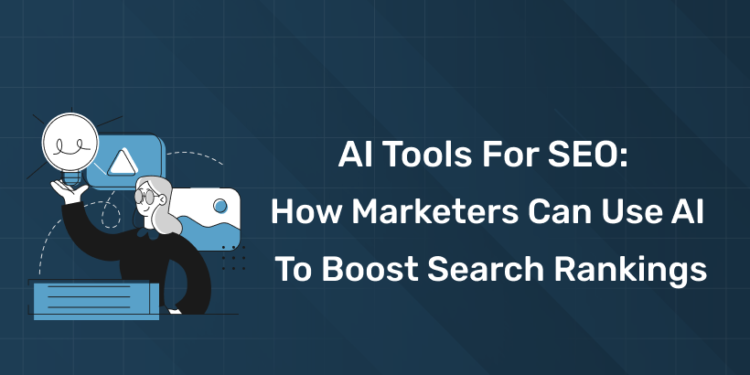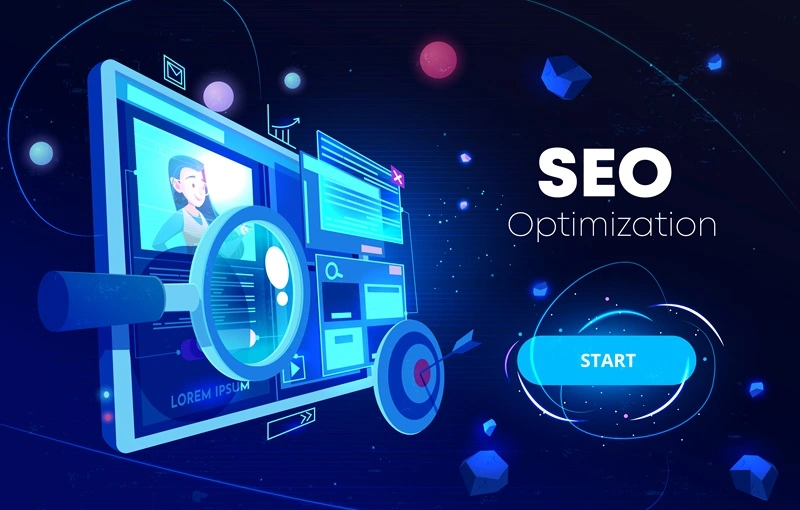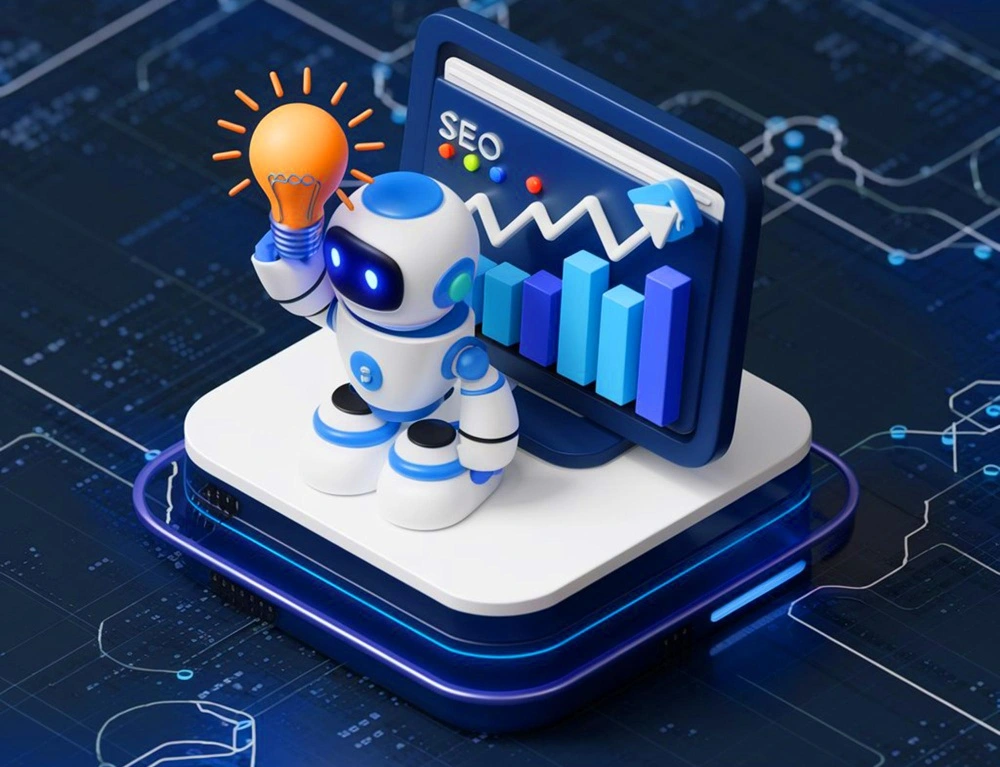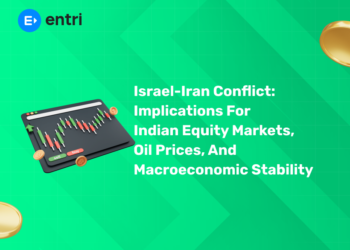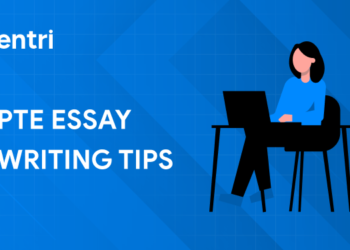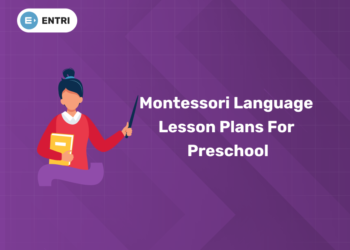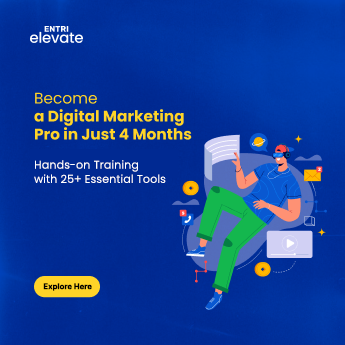Table of Contents
If you’ve already read the pillar article “AI Tools for Marketers” on Entri’s blog, this is your next step.
That article gave you the big picture of how AI fits into modern marketing.
This child page goes deep into one slice of that stack:
👉 AI tools for SEO – what they are, how they work, and how you can actually use them day to day.
This guide is written for:
- Normal readers who want to understand SEO in simple language
- Aspiring digital marketers who want to level up their skills
- Students considering Entri’s AI Powered Digital Marketing Course and wondering:
“Will I actually learn how to use these tools in real campaigns?”
SEO in the Age of AI: What’s Actually Changed?
Before we talk about tools, let’s understand the new environment.
Google is okay with AI: but not with low-quality content
Google has been very clear:
- It does not ban AI-generated content by default
- It still ranks content based on helpfulness, originality and value, whether a human or AI wrote the first draft
The March 2024 core update tightened this further:
- Designed to reduce low-quality, unhelpful content and spam
- Google expects to remove up to 40% of low-quality sites that are thin, copied or written just to attract clicks
So AI itself is not the enemy.
Low-effort “SEO spam” is.
AI Overviews & answer engines are changing the SERP
With AI Overviews and similar features, Google sometimes shows an AI-generated answer at the top of the results, citing a few sources. Tools like Ahrefs and Semrush have already added features to monitor where AI Overviews appear and which URLs get cited.
That means:
- You’re no longer just fighting for “blue links”
- You’re also fighting to be the source AI trusts and cites
AI SEO tools help you understand these new layouts and adapt your strategy.
Where AI Fits in the SEO Workflow
1: What is the primary goal of SEO (Search Engine Optimization)?
Instead of thinking “Which tool should I buy?”, think “Which part of my SEO workflow needs help?”
A typical SEO workflow looks like this:
- Research & strategy
- Keyword & topic research
- Competitor analysis
- SERP intent analysis
- Keyword & topic research
- Planning
- Content calendars
- SEO briefs for writers
- Content calendars
- Creation & optimisation
- Drafting articles
- Optimising on-page elements
- Internal linking
- Drafting articles
- Technical & on-site SEO
- Site audits, speed, core issues
- Monitoring & reporting
- Rankings, traffic, AI Overview presence
- Content gaps & update opportunities
- Rankings, traffic, AI Overview presence
There are AI-powered tools for each stage. Let’s break them down.
Become an AI-powered Digital Marketing Expert
Master AI-Driven Digital Marketing: Learn Core Skills and Tools to Lead the Industry!
Explore CourseAI Tools for Keyword & Topic Research
Chatbots as free keyword assistants
You can use general AI chatbots (like ChatGPT, Gemini, Claude, etc.) as idea generators during the research phase.
Semrush has even published detailed guides on using free chatbots for AI keyword research – clustering, intent suggestions, long-tail ideas and more.
What they’re good for:
- Getting seed keyword ideas
- Brainstorming question-based keywords (“how”, “why”, “which”)
- Grouping topics into clusters (pillar + child pages).
What they’re NOT good for (alone):
- Precise search volumes
- Real competition metrics
So you start with AI… but validate with proper SEO tools.
Keyword research with AI-enhanced SEO suites
Modern SEO platforms have added AI layers on top of classic keyword data:
- Semrush Content Toolkit & ContentShake AI
- Uses keyword + SERP data to suggest content ideas, briefs and outlines.
- Ahrefs AI features (AI Content Helper, AI keyword intents, etc.)
- Helps you understand search intent, find topical gaps, grade your content and even suggest technical fixes via “Patches”.
- Dedicated AI keyword tools (Mangools’ curated list etc.)
- Tools like Frase, NeuronWriter and others combine SERP analysis with AI suggestions.
- Tools like Frase, NeuronWriter and others combine SERP analysis with AI suggestions.
How you might use them in practice:
- Use a chatbot to generate seed ideas (“best ai tools for…”, “ai seo tools for beginners”).
- Plug those into Semrush/Ahrefs to check:
- Search volume & difficulty
- Top pages & competitors
- Related queries & subtopics
- Search volume & difficulty
- Ask the tool’s AI features to:
- Suggest search intent (informational, commercial, transactional)
- Find topical gaps your competitors haven’t covered
- Suggest search intent (informational, commercial, transactional)
From there, you decide which topics become pillar pages and which become child pages, just like this blog structure.
AI Tools for Content Briefs & On-Page Optimisation
This is where most people first feel AI’s power in SEO.
SERP-informed content briefs
Tools like Frase, Surfer SEO, Clearscope, MarketMuse, and Semrush’s ContentShake AI analyse the top-ranking pages for a keyword and then help you:
- Identify common headings & subtopics
- Spot gaps where you can add extra value
- Suggest LSI / semantic keywords to naturally include
Frase, for example, builds SERP-informed briefs and optimisation scores that let you see how well your content covers a topic vs competitors.
This is AI used as a research assistant, not a replacement writer.
AI-assisted writing – done the right way
Many tools now blend AI with SEO data:
- Jasper, Writesonic, Copy.ai – AI writing tools with SEO-friendly templates, often integrating with Surfer or similar platforms.
- AIOSEO’s AI features for WordPress – generate SEO titles, meta descriptions and content suggestions directly inside your WP editor.
Smart way to use them:
- Use an AI brief tool to define:
- Search intent
- Main H1/H2/H3 structure
- Key questions to answer
- Search intent
- Use an AI writer to generate sections or first drafts, not entire articles in one click.
- Then rewrite, enrich and localise:
- Add Indian examples, real case studies, screenshots
- Insert your own process or frameworks
- Check facts and numbers with trustworthy sources
- Add Indian examples, real case studies, screenshots
Remember: with the March 2024 update, Google is specifically targeting unoriginal, thin and overly templated content.
AI should speed up thinking, not remove thinking.
On-page optimisation & content scoring
Many AI SEO tools give your article a “content score” based on:
- Coverage of key terms and entities
- Heading usage
- Readability
Use the score as a guide, not an obsession.
Sometimes the best answer for users is simpler and shorter than what tools want, especially for very specific queries.
Become an AI-powered Digital Marketing Expert
Master AI-Driven Digital Marketing: Learn Core Skills and Tools to Lead the Industry!
Explore CourseAI Tools for Technical & On-Site SEO
Technical SEO is where beginners often feel lost. AI is starting to make that easier.
AI-assisted site audits & fixes
Modern SEO suites (Ahrefs, Semrush and others) now use AI to:
- Explain why a technical issue matters
- Suggest natural-language fixes
- Prioritise issues by impact
Ahrefs’ AI “Patches”, for example, can suggest solutions for specific technical problems like broken redirects, meta issues, and more.
Instead of just “You have 182 pages with missing meta descriptions”, AI can help you:
- Understand which sections to fix first
- Generate better templates for titles, descriptions and headings
Smart internal linking & structure
Some AI SEO tools:
- Suggest internal link opportunities between your articles
- Help create topic clusters and content hubs
- Map which pages should link to your main money pages
This is vital as answer engines and AI Overviews look for strong, well-organised topic coverage – not random, isolated blogs.
AI Tools for SERP & AI Overview Analysis
With AI Overviews and rich SERPs, understanding how search results are rendered is now part of SEO.
Monitoring AI Overviews & visibility
Tools like Semrush and Ahrefs have introduced features to:
- Show when AI Overviews appear for a keyword
- Show which URLs are cited inside those AI answers
- Help you monitor shifts as Google experiments with AI results
This lets you:
- See where you’ve lost traditional clicks
- Find new opportunities to be the “source” AI references
- Decide when to create more in-depth, evergreen resources to attract citations
As AI answers become more common, being trusted and cited becomes as important as traditional rankings.
Join Our Online Digital Marketing Course & Learn the Fundamentals!
Building a Simple AI-SEO Stack (Beginner-Friendly)
If you’re a student or new marketer in India, you don’t need an enterprise toolset.
Here’s a simple, realistic stack to begin with:
Free / low-cost base
- A good AI chatbot (for brainstorming topics, outlines, FAQs)
- Google Search Console + Google Analytics 4 for performance data
- A freemium SEO plugin (AIOSEO / RankMath / Yoast) for on-page basics
One content/SEO assistant
Pick one from this group to start:
- Surfer SEO, Frase, ContentShake AI, or similar
Use it to:
- Build better content briefs
- Check topical coverage
- Plan pillar + cluster structures
One research suite (even on a starter plan)
- Semrush or Ahrefs starter plan for:
A sample workflow for one blog
- Use a chatbot to brainstorm topic angles around “AI tools for SEO”.
- Use Semrush/Ahrefs to:
- Check search volumes and related keywords
- Analyse top-ranking articles
- Check search volumes and related keywords
- Build a brief in Frase/Surfer:
- Headings, questions, subtopics
- Headings, questions, subtopics
- Use an AI writer for:
- Drafting individual sections, not the full article
- Drafting individual sections, not the full article
- Add your own:
- Real tools, screenshots, Indian context
- Internal links (to the pillar article and other child pages)
- Real tools, screenshots, Indian context
- Run an on-page optimisation pass (SEO plugin + content optimiser).
- Track performance in Search Console and refine as needed.
Common Mistakes to Avoid with AI SEO Tools
One-click AI articles
Tempting, but dangerous.
- They often feel generic, lack real examples, and may repeat existing content.
- Post-March 2024, Google is aggressively cutting such thin, unhelpful content.
Ignoring EEAT & real expertise
Google’s quality systems lean heavily on Experience, Expertise, Authoritativeness, and Trustworthiness (EEAT).
If your content:
- Has no real-world examples
- Hides author identity and credentials
- Offers generic advice without nuance
…AI assistance won’t save it.
Over-optimising just for “content scores”
Content scores are useful, but:
- Don’t stuff extra terms just to move from 72/100 to 82/100
- Prioritise clarity, usefulness and readability for humans
Forgetting technical and UX basics
AI won’t fix:
- Slow page speed
- Terrible mobile experience
- Confusing site structure
These still impact rankings and user signals heavily.
Key AI SEO Tools You Should Know About
Here are some of the top AI tools for SEO, grouped by their role:
1. Content Optimization & On-Page SEO
- Surfer SEO: One of the most popular AI SEO tools, it analyses SERP data and gives real-time optimisation suggestions as you write (headings, terms, structure).
- Clearscope: Helps with semantic keyword usage and content quality; provides a “content grade” to ensure your content aligns with what’s already ranking.
- NeuronWriter: Uses Google’s NLP model to suggest terms and structure, especially helpful for semantic SEO and content clustering.
2. Content Research & Brief Generation
- Frase: It can generate detailed content briefs by analysing the top-ranking pages for your topic. This helps you shape outlines intelligently.
- MarketMuse: Excellent for content strategy, it identifies topic gaps, recommends subtopics, and helps you build topical authority.
3. Keyword Research & Clustering
- GrowthBar: Offers keyword research, competitor insights and content generation in one place.
- Alli AI: Focuses on technical SEO, can apply bulk optimisations (like meta tags, schema) using AI and rules without you having to code.
4. AI Writing Assistants (SEO-friendly)
- Jasper AI: Powerful for drafting SEO-rich content, blog posts, meta descriptions and more.
- ChatGPT / OpenAI models: Useful for ideation, outlines, FAQs, meta content. While not SEO tools by themselves, they’re very flexible.
- Writesonic: Particularly popular for SEO content, its generative engine helps you create optimized articles, landing pages, and more.
5. All-in-One SEO Platforms with AI
- SEMrush (AI-augmented): SEMrush’s newer AI features integrate with its traditional SEO toolkit, helping with content, competitor research, and optimisation.
How Entri’s AI-Powered Digital Marketing Course Helps You Use These Tools
Reading about tools is one thing.
Using them on real campaigns is where you build confidence.
According to Entri’s official pages and FAQs, the AI-Powered Digital Marketing Course is built around:
- Job-focused curriculum
- SEO, SMM, PPC, analytics and content marketing with AI integrated
- SEO, SMM, PPC, analytics and content marketing with AI integrated
- Hands-on projects
- Real-world SEO tasks: keyword research, content plans, on-page optimisation, reporting
- Real-world SEO tasks: keyword research, content plans, on-page optimisation, reporting
- Tool training
- Exposure to AI-powered SEO and marketing tools, not just theory
- Exposure to AI-powered SEO and marketing tools, not just theory
- Placement assistance
- Alumni placed in roles like Digital Marketing Analyst, performance marketer, SEO specialist, etc.
- Alumni placed in roles like Digital Marketing Analyst, performance marketer, SEO specialist, etc.
For someone serious about AI + SEO, the course helps you:
- Understand Google’s latest updates (Helpful Content, EEAT, AI Overviews) in depth
- Practice with AI tools for:
- Keyword research
- Content briefs & optimisation
- Technical audits and reporting
- Keyword research
- Build a portfolio you can show to agencies and companies
Instead of being “the person who knows some tools”, you become the marketer who can connect tools to business results.
Key Takeaways – AI Tools for SEO
- AI is deeply embedded in modern SEO, from keyword research to content and technical audits.
- Google does not ban AI content, but it aggressively filters unhelpful, low-quality, copy-paste articles. Focus on helpfulness and EEAT.
- Use AI tools in stages:
- Chatbots + SEO suites for keyword & topic research
- Frase, Surfer, ContentShake AI etc. for briefs & on-page optimisation
- Ahrefs, Semrush and others for technical, SERP and AI Overview analysis
- Chatbots + SEO suites for keyword & topic research
- Don’t rely on one-click AI articles; instead, use AI for:
- Research
- Structure
- Drafting pieces that you deeply edit and localise
- Research
- A simple beginner stack (chatbot + one SEO plugin + one content optimiser + one research tool) is enough to start.
- Entri’s AI-Powered Digital Marketing Course gives you the structured practice, tool exposure and mentorship to actually implement these ideas in real campaigns and build a career around them.
Also check out:
- Entri’s Resume Builder to craft industry-ready, ATS-optimised resumes tailored for digital marketing and AI-related roles.
- Prepare for interviews with Entri’s AI Interview Preparation App, which simulates real-world interview questions and gives instant, data-backed feedback to improve your confidence and communication skills.
Frequently Asked Questions
What are AI tools for SEO?
AI tools for SEO are platforms that use artificial intelligence to improve keyword research, content optimisation, SERP analysis, and ranking performance. They help marketers work faster and more accurately.
Are AI SEO tools useful for beginners?
Yes. Tools like Surfer, Frase, and GrowthBar offer guided workflows, real-time suggestions, and beginner-friendly dashboards, making SEO easy for newcomers.
Can AI tools guarantee higher rankings?
No tool can guarantee rankings, but AI tools significantly improve optimisation, reduce errors, and help you align content with user intent, increasing your chances of ranking.
Which AI tools are best for keyword research?
GrowthBar, SEMrush AI features, and Keyword Insights are popular for AI-assisted keyword clustering, SERP intent analysis, and long-tail keyword discovery.
Is AI-generated SEO content safe for Google?
Yes, as long as the content is useful, human-reviewed, accurate and not spammy. Google evaluates quality, not the tools used to create the content.
How does AI help with content optimisation?
AI analyses ranking pages and suggests ideal word count, headings, semantically related keywords, readability improvements and content gap recommendations.
Can AI tools help with technical SEO?
Some tools like Alli AI assist with meta tags, internal linking, schema markup, and bulk on-page fixes. However, complex technical SEO still needs human supervision.
Are AI SEO tools expensive?
Many tools offer affordable plans or free trials. Beginners can start with low-cost tools like GrowthBar or NeuronWriter and upgrade later.
How often should I use AI tools to update SEO content?
Refreshing content every 3–6 months using AI suggestions helps maintain relevance and prevent ranking drops.
Where can I learn to use AI tools for SEO professionally?
Entri’s AI-powered Digital Marketing Course teaches practical SEO workflows, hands-on AI tools, and real projects — ideal for beginners and aspiring marketers.


